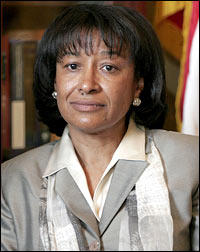UW Political Segments
Making your way from Humanities to Agriculture, different types of political people abound at the University of Wisconsin. The greater majority of these people lie left of center and their issues, majors, persona, and lifestyles clearly differ depending on not only their personal preferences but what leftist segment they fall into. Conservatives also exist on campus in many forms. These categories of people are not mutually exclusive as many people may fall into multiple segments. These descriptions are simply social commentary and not meant to be offensive. I wrote the majority of these description a month or two ago. They are meant to be fun and are written in a David Brook-esque type of way (ie read Bobos in Paradise or Paradise Drive). Comment if you feel the stereotypes of certain segments are innaccurate.
UW Liberal Types
Natural Idealists
Wandering around Science or Birge, you are bound to bump into the liberal types who not only enjoy the environment but they clearly revel and worship the earth. Walking around in Birkenstocks, a faded Phish or geographic t-shirt, and generic cargo shorts/pants, their dedication to keeping the planet clean and green is unmatched. Typically majoring in some area of environmental studies or natural sciences, natural idealists not only spend their academic duration celebrating and learning about the water, earth, and life but also often get involved in active groups such as WISPIRG or the Sierra Club. Their dedication to the environment also shows in their typical summer jobs where they lead rafting trips, camp counsel, lobby green at governmental centers, etc. Politically, they often hold pessimistic views on global warming and free trade, ridicule big business, celebrate family and organic farms, and give an uncompromising view on things environmental.
Feminist Enthusiasts
Around Bascom Hill and Humanities, you are certain to see the modest dressing intellectual females walking to some liberal arts lecture. Abounding in disciplines such as Woman’s Studies, English and other humanities, these females will often hold a similar outlook on both men and politics. In many ways, they feel threatened by Patriarchal societies and feel that the glass ceiling must be smashed, traditional gender roles should be ignored, men should be educated about rape, and abortion needs to be available. Coming from a variety of socioeconomic backgrounds, they hold alliegance to many of these feminist values and spend their time volunteering and working for organizations such as PAVE, Campus Woman’s Center, and other organizations that fight rape, inequality, and suffering. Politically, they hold pessimistic views about men, business, and traditional Christian values while working towards woman’s rights, abortion rights, minority racial rights, and racial/economic equality.
Creative Artists
Art in many forms is celebrated and held in high esteem not only at UW but other campuses across the country. Varied in dress, stature, and gender, creative artists abound in the music, art, theatre, communications and other humanities departments across campus. Whether it be singing in Redefined, watching a play in Vilas, helping run a concert at the Union, or sculpting a pot inside Humanities, their lives revolve around creating, designing, and facilitating representations of our world. These are the people who truly dislike the mass commercialization of music (ie pop music), homogenous cookie-cutter suburban architecture, and any form of art done in uniform un-thoughtful and unaesthetic fashion. With their passions abound in the artistic world, they often try to ignore the reality and are hostile to the hard analytical business world that awaits them once college ends. Their career paths and mindset are then to live out their theatrical fantasies on Broadway, start their own art studio in a city like San Francisco, help record music for an Indie record label, or teach art/music at a private performing arts school. They hope for a more a soft world where people can follow their artistic dreams and live plentifully even if this means ignoring the market for their ideas and work. Not torn then to any specific liberal agenda (environment, woman’s issues, race), they hold people and their ideas in high esteem and wish for a peaceful, creative, and economically equal world.
Concerned Socialites
A segment of liberals hard to point out on the UW campus, you will not find these individuals wearing Abercrombie & Fitch t-shirts, Ugg boots, or status clothes that would display a materialist aura or show their money. Spread out amongst a variety of disciplines including sociology, social work, political science, and other social sciences/humanities, concerned socialites believe that we must work towards the greater good of humanity both as individual consumers and government to achieve social ideals and goals. These social ideals would often include economic equality (often to the extreme of socialism or communism), upward mobility of the lower class, environmental sustainability, racial equality, etc. In order to maximize social welfare, they often have grandiose visions of the government (at all levels) playing a large role in redistributing wealth, organizing and regulating businesses, and celebrating diversity and equality amongst ethnic groups, religions, genders, and peoples. Maybe the most intellectually liberal and racially diverse segment of the population, they also tend to be geographically from central cities or inner suburban neighborhoods. Creating a more collective and government ran society is their ultimate goal and often their post-collegiate efforts go towards serving in non-profits, governmental agencies, and other nurturing and activism professions that will hopefully achieve their political desires.
Compassionate Females
A large group of females with their origins in traditional families from suburban and rural America, their movement towards more liberal politics lie in their drift towards nurturing and helping professions. The segment varies from J-Crew Langdon party girls to more traditional Old Navy farm girls. Commonly found in academic areas like nursing, teaching, social services, and other majors, they find themselves in traditional female helping roles in the 21st century workplace. With a genetic predisposition to being compassionate, kind, and loving, their worldviews often revolve around not only some form of Christianity and God but also the idea that a softer, less harsh society is ideal. Often their assumptions of conservative thought and Republicans will be ones of selfishness, intolerance, and disregard for others. A more moderately liberal segment, these woman are the probably the most susceptible to becoming more conservative once they get married due to their often more religious worldview, traditional family upbringing, strong work ethic, and less embedded leftist ideals.
Conservative Types
Independent Masculines
Off of Bascom Hill, numerous UW collegiate men are readying themselves for professional careers in engineering, business, or agriculture. Whether sporting Ralph Lauren Khakis and a Tommy Polo or Levi’s Jeans with a Badger T-shirt, these men adapt their attire to work/class and social situations. Many type-A and other motivated individuals, they see themselves as champions and drivers of the world through developing new products, providing essential services, and creating efficiency in what they see as a competitive and hard world. Committed to solidifying their place in the 21st century job market, free time is often spent in internships/Co-Ops, preparing for MCATs and graduate level tests, and networking within clubs/organizations. Their value of hard work, self-sufficiency, and individualism translates to a more conservative and less government worldview. Valuing the free market, empowering people to succeed, and harder nose to criminal activity, they traditionally see government as an institution that’s role is not to help people but rather to provide essential services like infrastructure, education, and law enforcement.
Religious Traditionalists
Dispersed through the campus and in a variety of majors, a significant minority of religious conservatives exist on campus. While they may be hard to pick out externally and geographically, look towards specific religious studies classes and inside St. Paul’s, 3650 Humanities Thursday nights and other specific spiritual events. Most likely not counter-cultural, excessive piercings, tattoos, and alternative clothing are not the norm for most Religious Traditionalists. Carrying traditional Judeo-Christian or Islamic worldviews, their political beliefs most often stem from orthodox social views. Valuing and finding truth in the historical texts of the Torah, Bible, or Koran, they draw clear moral absolutes which blend into public policy. Standard ideals include pro life, anti gay marriage, and other ideals that would hopefully curb sin within society. Though many religious traditionalists may believe in other conservative ideals such as self-reliance, free markets, and a more hawkish military, they maintain their confidence in the Republican Party due to the platform on social issues.
Common Heartlanders
From Weyauwega to Waukesha, many young college conservatives follow in the footsteps of their parents in dedication to right-wing principles and values. Fairly mainstream, designer clothes or counter culture attire are not in the wardrobe for Common Heartlanders. Studying a variety of disciplines, they are fairly spread out across campus. While not being totally abiding to neoliberal orthodoxy of Independent Masculines or religious principles of Religious Traditionalists, they find themselves resistant to extreme political and social change of most sorts. They essentially believe in traditional America pledging allegiance to domestic businesses, frugality, hard work, the Armed Forces, God, and family. They see government in a less positive view and feel that people should be running their own lives, not Washington. Certainly not the ideologues of the neoliberal or religious right, they may feel threatened by overbearing liberals and choose not to talk politics. Their conservatism is more out of parental upbringing and culture than religious or economic truths.
Upper-Class Coasties
Easily visible at a bar like Johnny O’s, walking down Langdon Street, or attending a normal college lecture, the outward appearance of the upper-class at University of Wisconsin gives way to many common stereotypes amongst the student body. The party and pop/materialistic culture of the segment can be seen by packed fraternity parties, designer pop-collars, Brought up not only across the country in blue blooded suburbs like Scarsdale (NY), Irvine (CA), or Potomac (MD), many so-called Coasties hail from Midwest money and grew up in wealthy suburbs like Edina (MN), Winnetka (IL), and Bloomfield Hills (MI). So whether the label holds geographical merit, this segment of UW students holds many of the same values which translate to politics. And whether you’re an ally or adversary of the lifestyle and culture of the common Coastie, a major segment of this population have conservative streaks whether actually conscious of the politics involved or not. While they may not hold the strong religious or moral beliefs, they do believe that the money they make is theirs and it should be theirs to spend. They may not be making this money currently and are receiving their education through inheritance or parent bank accounts yet there is a desire to maintain the money, lifestyle and power they used to. Even if they do consider themselves liberal at this stage of their life (probably because of specific social issues like pro-choice, anti gay marriage, anti religious right, etc), they are most likely to move and vote right in the future. Why? Getting jobs through good connections or good grades once done with college, they will want to maintain their edge in society and their adolescent lifestyle. Why would they support higher taxes, labor unions, protectionism, welfare, and anything revolving large government? Doing so would be against their economic self-interest though I know due to cultural and social beliefs many Upper-Class Coasties will vote Democrat. Due to culture, the least likely to move right will be Jews due to their continued support for the Democratic Party (though there are many Jews that are conservative). Yet there will be a sizeable number who will vote Republican in the future as they gain experience from work in the private sector. This segment’s conservatism comes from both their parents and culture rather than strict economic or religious thought.




